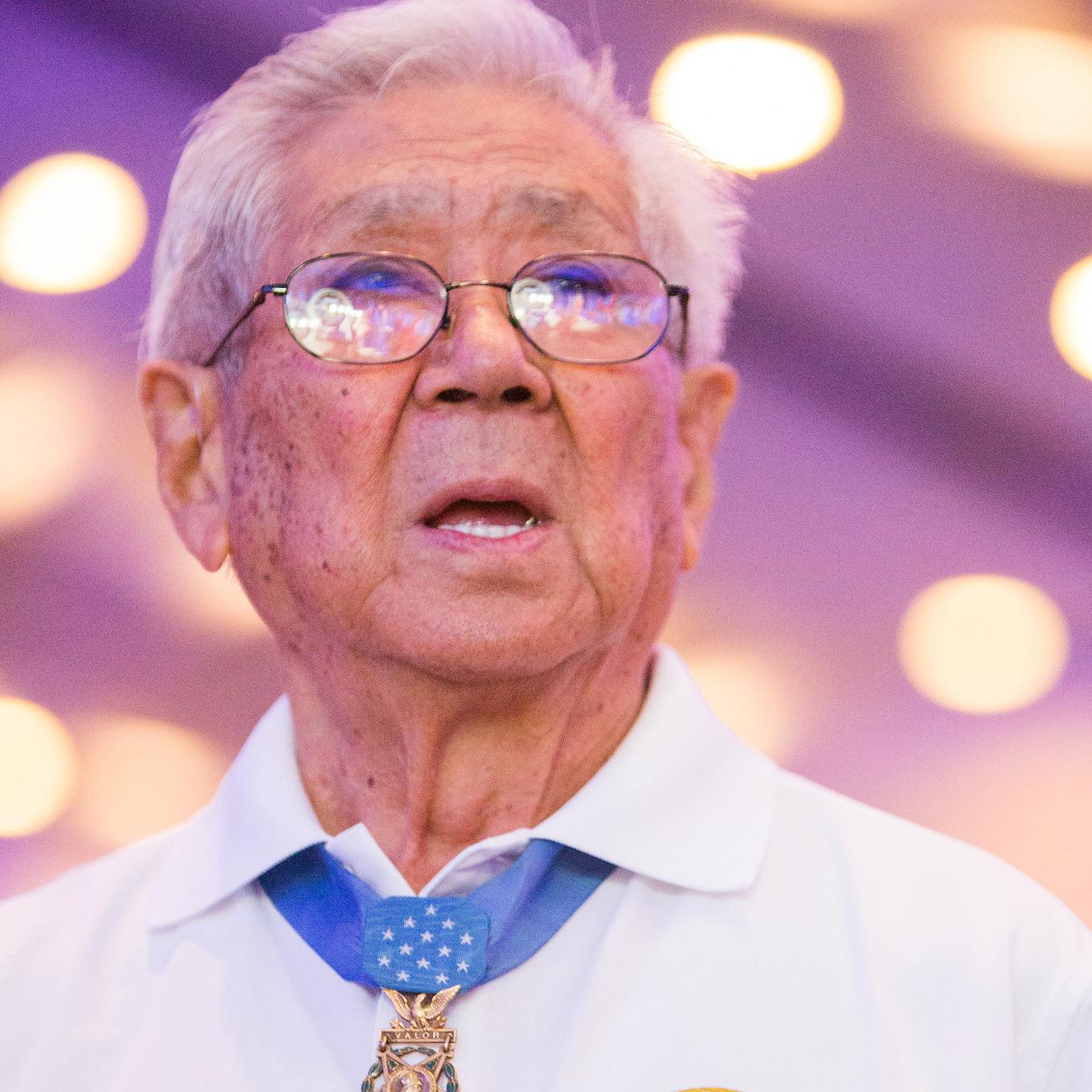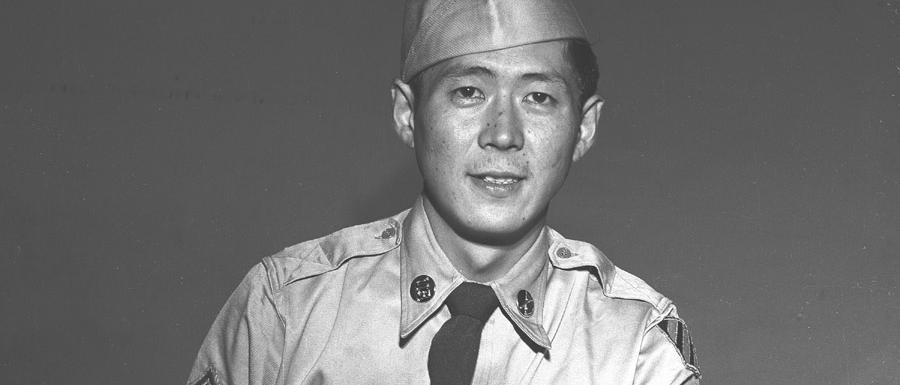
On April 24, 1951, while fighting in North Korea during the Korean War, U.S. Army Corporal Hiroshi “Hershey” Miyamura and his machine gun squad were attacked in a harrowing night assault by waves of Chinese soldiers who began to overrun their position.
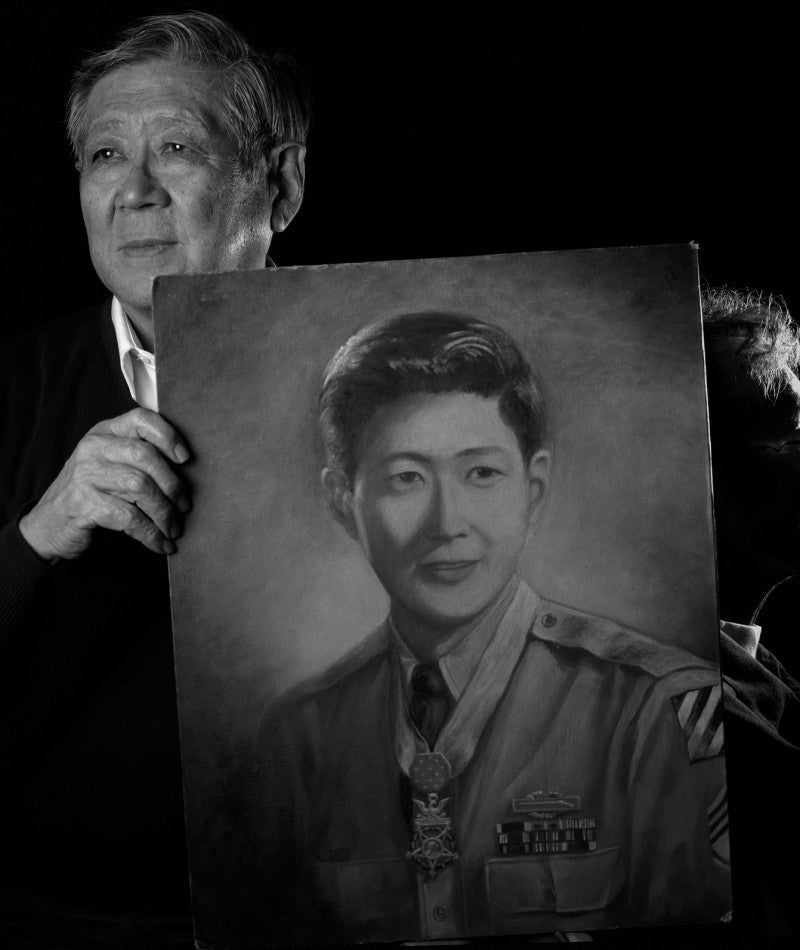
PHOTO CREDIT: USED WITH PERMISSION, COPYRIGHT NICK DELCALZO
Miyamura jumped up from his position and fought hand-to-hand with his attackers, killing about 10 enemy soldiers with his rifle and bayonet before ordering his men to withdraw. As they pulled back, he stayed behind to cover them, blasting away with their last operating machine gun until receiving a serious wound. His extraordinary bravery earned him a Medal of Honor but the official citation, drafted soon after the incident, presumed he had died in the fighting.
“When last seen he was fighting ferociously against an overwhelming number of enemy soldiers,” his Medal of Honor citation says.
When the U.S. government learned that Miyamura had been captured, his Medal of Honor, which had not yet been publicly announced, was quickly classified as “top secret” to protect Miyamura from retribution by his captors.
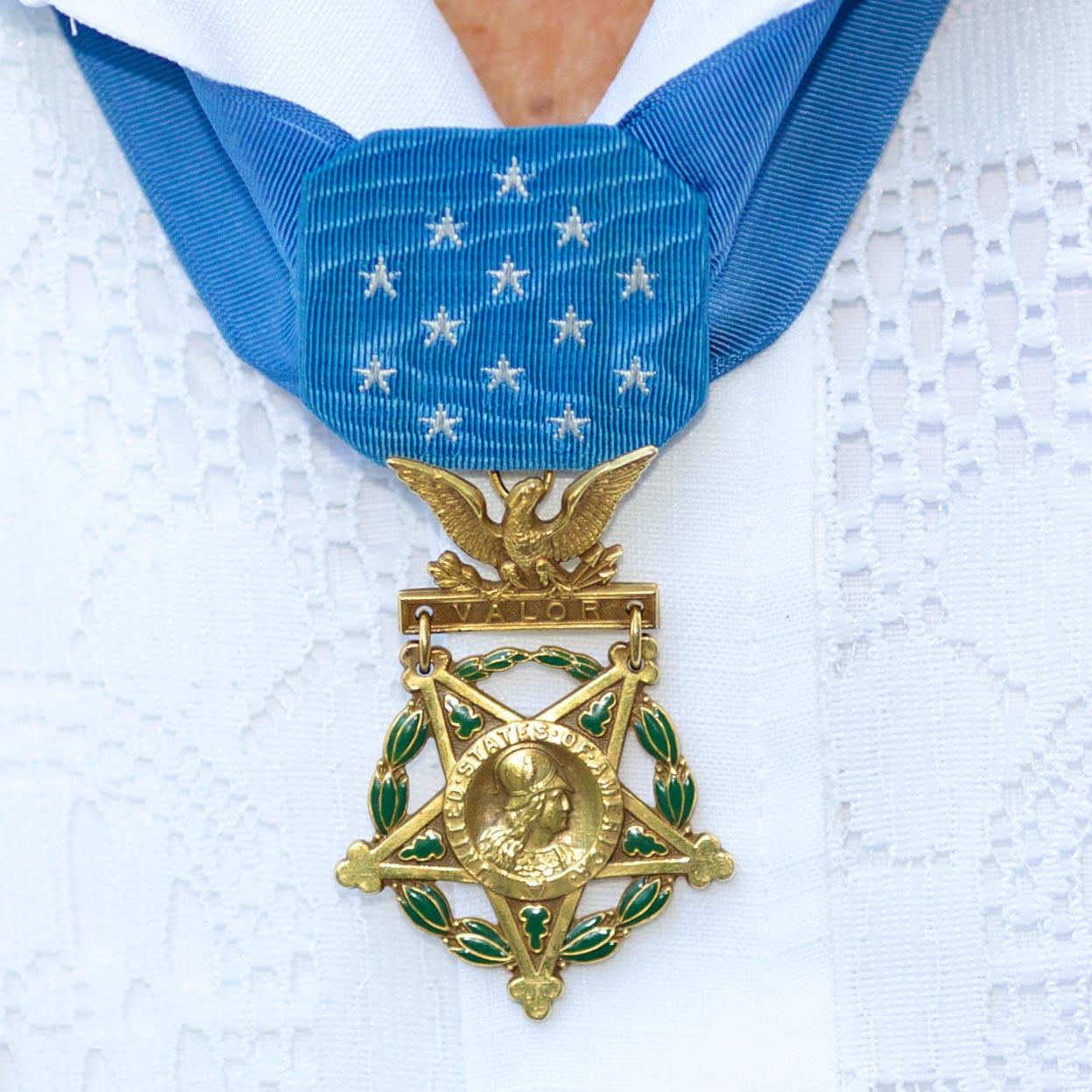
PHOTO CREDIT: --MARK-- VIA FLICKR (CC BY-NC-SA 2.0)
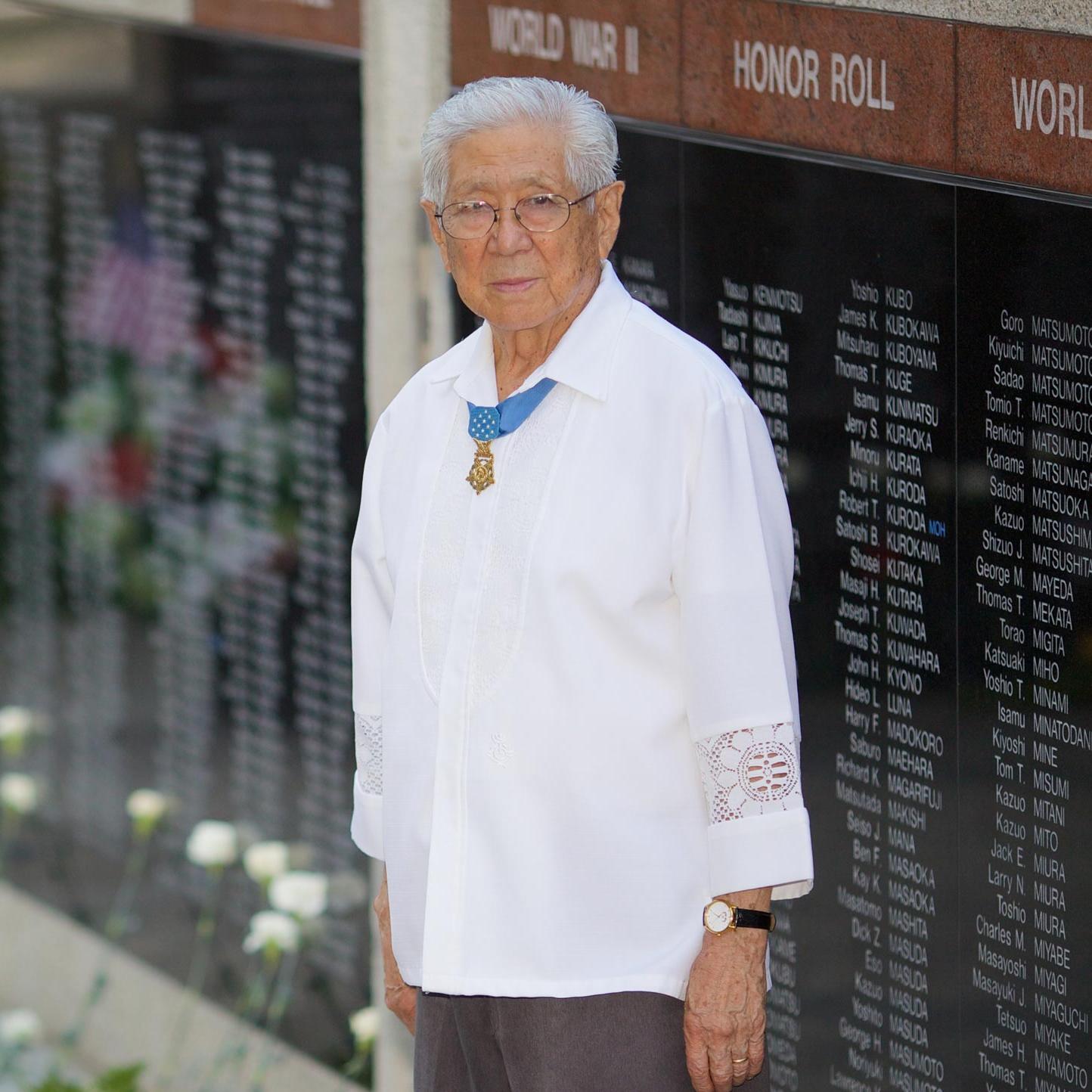
PHOTO CREDIT: -MARK-- (CC BY-NC-SA 2.0)
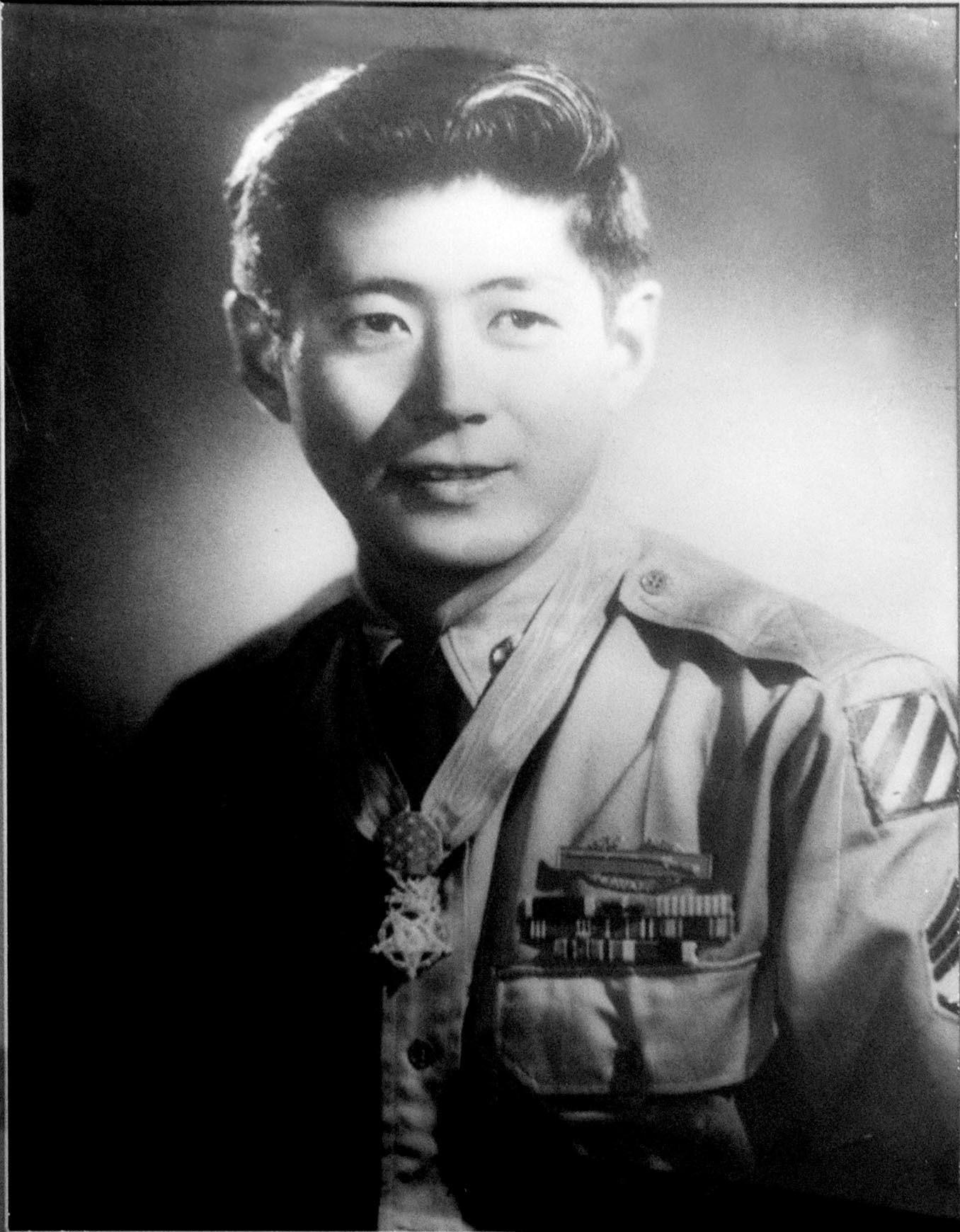
“When last seen he was fighting ferociously against an overwhelming number of enemy soldiers.”
The only Medal of Honor award to be classified as “top secret” remained so for more than two years as Miyamura suffered through 28 months of imprisonment that included torture, some 300 miles of forced marching, bad water, little food and conditions so horrid that hundreds of his fellow prisoners died.
Upon his release in August 1953, Miyamura was pulled aside as he reached Freedom Village and informed by his commanding general that he had been awarded the Medal of Honor. “I remember all I could say was, ‘What?’” Miyamura recalled years later.
“Miyamura wanted to fight for the United States in World War II but was deemed ineligible to serve because of his ancestry until 1945.”
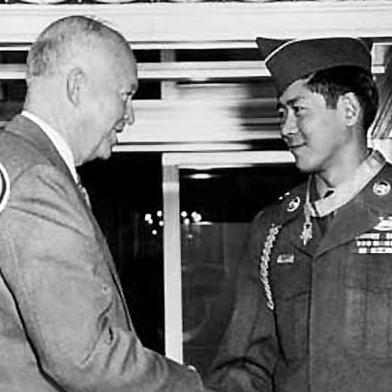
Photo credit: Department of Defense
A photograph showed him still wearing striped clothing as he sat beside the general in front of a cluster of microphones. He received the award from President Dwight D. Eisenhower at the White House that October.
Born in 1925 in Gallup, New Mexico, to Japanese immigrants, Miyamura wanted to fight for the United States in World War II but was deemed ineligible to serve because of his ancestry until 1945, when he enlisted in a unit entirely comprised of Japanese-Americans. Days before he was to be shipped off to Italy with his unit, the war ended.
Miyamura continued serving in the Army Reserve and was recalled to active duty when the Korean War started in 1950. Upon his release as a prisoner, he was promoted to sergeant in addition to being awarded the Medal of Honor.
Miyamura returned to Gallup and established a career as an automobile mechanic and service station owner. He was married for 66 years until his wife Terry’s death in 2014. Miyamura himself passed away on November 29, 2022. He is survived by his three children and four grandchildren, including one, Marisa, who is a U.S. Air Force officer.
